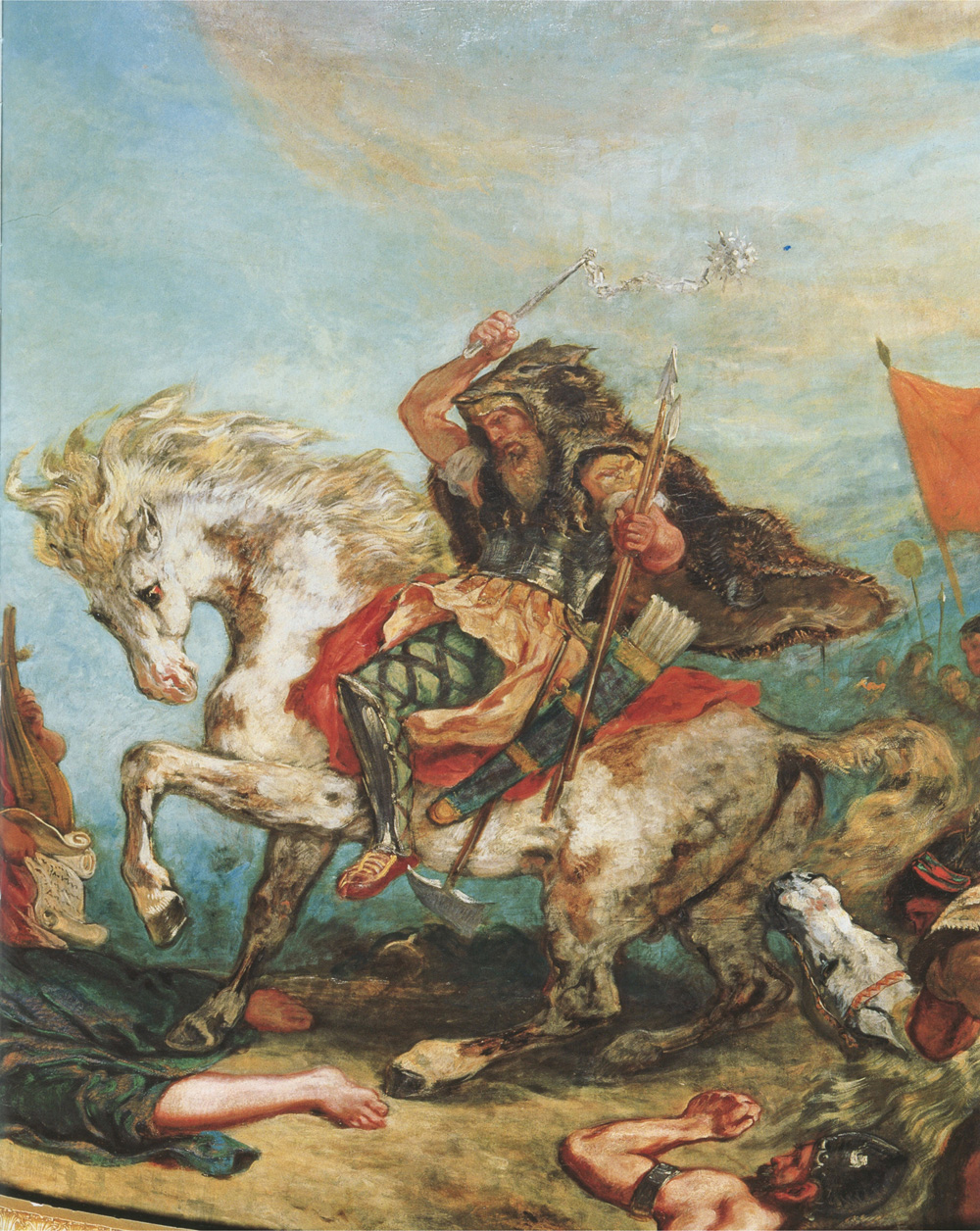Attila Zitate und Sprüche
Attila: Zitate auf Englisch
Turkish Wikipedia
https://quotestats.com/topic/attila-hun-quotes/
“Superficial purposes have superficial consequences.”
Turkish Wikipedia
https://quotestats.com/topic/attila-hun-quotes/
Turkish Wikipedia
https://quotestats.com/topic/attila-hun-quotes/
Turkish Wikipedia
https://quotestats.com/topic/attila-hun-quotes/
Turkish Wikipedia
https://quotestats.com/topic/attila-hun-quotes/
“The smart leader never asks the question he doesn't want to hear the answer!”
Turkish Wikipedia
https://quotestats.com/topic/attila-hun-quotes/
“If you want your enemy to trust you in the future, keep the promises you made during bargaining.”
Turkish Wikipedia
https://quotestats.com/topic/attila-hun-quotes/
As quoted by Edward Gibbon (1781), The History of the Decline and Fall of the Roman Empire, Vol. III, chapter 34
As quoted by Jordanes, The Origin and Deeds of the Goths http://people.ucalgary.ca/~vandersp/Courses/texts/jordgeti.html#attila, translated by Charles C. Mierow
Turkish Wikipedia
https://quotestats.com/topic/attila-hun-quotes/
“A purposeless Hun never knows when he has achieved his goal.”
Turkish Wikipedia
https://quotestats.com/topic/attila-hun-quotes/
“Leaders should steer the Huns, never letting them remain purposeless.”
Turkish Wikipedia
https://quotestats.com/topic/attila-hun-quotes/
“Huns should only enter wars in which they can win.”
Turkish Wikipedia
https://quotestats.com/topic/attila-hun-quotes/
Turkish Wikipedia
https://quotestats.com/topic/attila-hun-quotes/
Turkish Wikipedia
https://quotestats.com/topic/attila-hun-quotes/
Turkish Wikipedia
https://quotestats.com/topic/attila-hun-quotes/
Turkish Wikipedia
https://quotestats.com/topic/attila-hun-quotes/
“You shouldn't want to be the head.”
Head=Leader
Turkish Wikipedia
https://quotestats.com/topic/attila-hun-quotes/
Turkish Wikipedia
https://quotestats.com/topic/attila-hun-quotes/
“Great commanders never take themselves too seriously.”
Turkish Wikipedia
https://quotestats.com/topic/attila-hun-quotes/
“Act naturally, not be caught in the false pride that your position brings to you.”
Turkish Wikipedia
https://quotestats.com/topic/attila-hun-quotes/
“Fear is effective as much as magic.”
Turkish Wikipedia
https://quotestats.com/topic/attila-hun-quotes/
